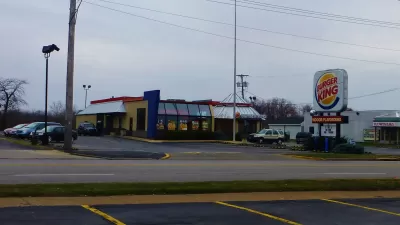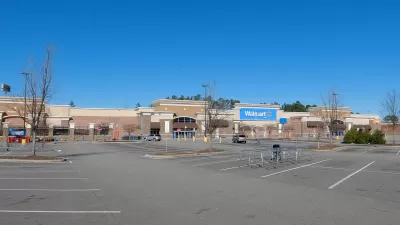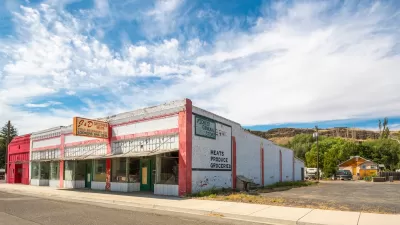Quartz makes the point that supermarkets alone won't solve the problem of poor diets among low-income Americans.

Deena Shanker responds to recent analysis by the Associated Press about the tendency of major grocers to avoid opening up new stores in food deserts.
That "doesn’t speak well of the supermarket industry’s efforts to help convert the nation’s nutritional wastelands into bastions of healthier eating," writes Shanker, referring to a 2011 pledge by a group of major food retailers to open 1,500 new stores in neighborhoods with no supermarkets by 2016. The food retailers have fallen short of that pledge, made as part of First lady Michelle Obama's "Let's Move" healthy eating initiative,
"But putting the focus on retailers misses the bigger picture," according to Shanker: "Supermarket access is just one piece of why low-income Americans tend to eat less healthy diets than higher-income Americans."
To make that case, Shanker cites data from a study by the U.S. Department of Agriculture (USDA) [pdf] into the relationship between food access and food choices. The report found that low-income shoppers simply make different food choices—even when access to better foods is available—but that price has little with those choices. The article goes on to explain some of the multiple solutions that can help address the challenge of obesity and diet quality, as they actually exist.
FULL STORY: It’s easy—but wrong—to blame supermarkets for food deserts

Alabama: Trump Terminates Settlements for Black Communities Harmed By Raw Sewage
Trump deemed the landmark civil rights agreement “illegal DEI and environmental justice policy.”

Study: Maui’s Plan to Convert Vacation Rentals to Long-Term Housing Could Cause Nearly $1 Billion Economic Loss
The plan would reduce visitor accommodation by 25% resulting in 1,900 jobs lost.

Planetizen Federal Action Tracker
A weekly monitor of how Trump’s orders and actions are impacting planners and planning in America.

Wind Energy on the Rise Despite Federal Policy Reversal
The Trump administration is revoking federal support for renewable energy, but demand for new projects continues unabated.

Passengers Flock to Caltrain After Electrification
The new electric trains are running faster and more reliably, leading to strong ridership growth on the Bay Area rail system.

Texas Churches Rally Behind ‘Yes in God’s Back Yard’ Legislation
Religious leaders want the state to reduce zoning regulations to streamline leasing church-owned land to housing developers.
Urban Design for Planners 1: Software Tools
This six-course series explores essential urban design concepts using open source software and equips planners with the tools they need to participate fully in the urban design process.
Planning for Universal Design
Learn the tools for implementing Universal Design in planning regulations.
Caltrans
Smith Gee Studio
Institute for Housing and Urban Development Studies (IHS)
City of Grandview
Harvard GSD Executive Education
Toledo-Lucas County Plan Commissions
Salt Lake City
NYU Wagner Graduate School of Public Service





























